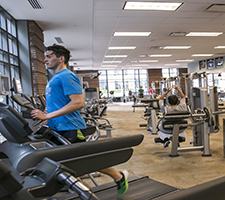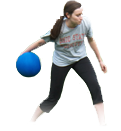
How a Sedentary Lifestyle During COVID-19 Can Quickly Affect Your Health
- Recent studies show that people in the United States are sitting a lot more than they did before the COVID-19 pandemic.
- Experts say this sedentary lifestyle can lead to health issues such as heart disease and type 2 diabetes.
- They note that a lack of movement can have a quicker and more profound effect on older adults.
- They say that even a short amount of physical exercise every day can help
Lockdowns during the COVID-19 pandemic have made many in the United States adjust to homebound lifestyles, the abrupt disappearance of their commutes, and a drastic increase in time spent sitting.
By some accounts, people in the United States are spending an average of 6 hours per day sitting, 4 hours more than they were before the pandemic.
Overall sedentary behavior has also increased, with physical activity among the already active dropping by a third, and already sedentary people staying sedentary, according to a recent working paper in the journal Psychiatry.
All of that spells bad news for the health of the average person in the United States, who’s already more sedentary than any other time in history.
“We have definitely seen instances of increased sedentary behavior, especially with more people at home during lockdowns, and more unemployment,” Dr. Richard Yoon, chief of orthopedics at Jersey City Medical Center in New Jersey, told Healthline.
“Not only the physical effects but also the mental challenges posed by the pandemic have taken their toll,” he said. “And I have seen that some of my patients are less active and visiting the fridge more often because of the loss of their old routines.”
The danger of too little activity
Sitting too much — as many of us are during lockdown at our computers or on our couches — is associated with increased risks for weight gain, heart disease, type 2 diabetes, and premature death, to name a few.
“It definitely takes less time for an unhealthy lifestyle to take hold than an active, healthy one,” Yoon said.
“Once you get into a routine of not doing much, you can start feeling the effects right away,” he said. “Muscle breakdown can start in as little as 24 hours, and aches and pains start to creep in.”
That sedentary behavior can also lead to increased back pain, which can make it less likely that a person will become active.
“Sedentary behavior and lifestyle have a very strong link to the development of back pain,” Dr. Medhat Mikhael, a pain management specialist and medical director of the nonoperative program at the Spine Health Center at MemorialCare Orange Coast Medical Center in Fountain Valley, California, told Healthline.
“Weight gain that puts a load on the spine and weakened abdominal and back muscles together with weakened ligaments would lead to further load on the spine,” he said. “All of these effects and changes would create a vicious circle of back pain and further physiological and mechanical deterioration of the spine.”
It might not take long for the effects of lower physical activity to set in, either. It can take as little as 3 or 4 weeks, Mikhael said.
And just like the aging body is more vulnerable to serious cases of COVID-19, lockdown sedentariness can also have more profound effects on older adults.
“Age would play a very important factor,” Mikhael noted. “Older people tend to decondition much quicker, and it might take someone as short as 2 weeks with a totally sedentary life to show major physiological and metabolic changes.”
One study in The Journals of Gerontology: Series A looked at overweight, prediabetic older adults who cut their number of steps in half for a week. They were slower than their younger counterparts in recovering muscle loss and glycemic control after returning to their previous daily steps for 2 weeks.
But regardless of whether you’re older or younger, experts agree that a return to movement is key.
“If you have a functional workspace, sitting anywhere for prolonged periods of time isn’t good for your spine. Try to stand up, stretch, and walk around every 30 minutes,” said Dr. Mona Zall, DO, a physical medicine and rehabilitation physician at Cedars-Sinai Kerlan-Jobe Institute in Los Angeles.
“If your work requires you to be present on a computer for several hours a day, consider breaking this time up,” she said. “Walking around the block (if you’re able to maintain adequate social distancing standards) or continue performing other exercises that can be nourishing to your spine and your mental health.”
Finding a way to establish a routine and schedule of healthy habits is also key, Yoon said.
“Get out of bed at a fixed time in the morning and get dressed for the day, rather than sitting around in your pajamas,” he said. “Studies have shown that putting your pajamas back on at night and having a fixed bedtime schedule can help you get a full, restful night’s sleep.
“Build time into your schedule for regular exercise and activities. Maintaining some semblance of a schedule, even in a quarantine or lockdown situation, is essential for avoiding a sedentary lifestyle and its negative effects.”
And even if you’ve been spending the better part of the year far more sedentary than you’d ordinarily be, scheduling in just a half-hour of regular physical activity can begin to counteract those negative effects.
“Our bodies are intricately designed to move efficiently and often,” said Dr. Neel Anand, a professor of orthopedic surgery and director of spine trauma at Cedars-Sinai Spine Center in Los Angeles.
“Gentle stretching and spine elongation exercises don’t require a ton of space, and simple strength training with dumbbells can also help,” he said.
“Core-focused exercises like planks are also strengthening for spinal muscles. Always remember to use the correct form with any activity you do, and if exercising is new to you, check with your doctor before you begin,” Anand said.
Written by Christopher Curley on December 9, 2020 — Fact checked by Michael Crescione





